Indian Heritage Month – Inside the ASJA Archives and Museum
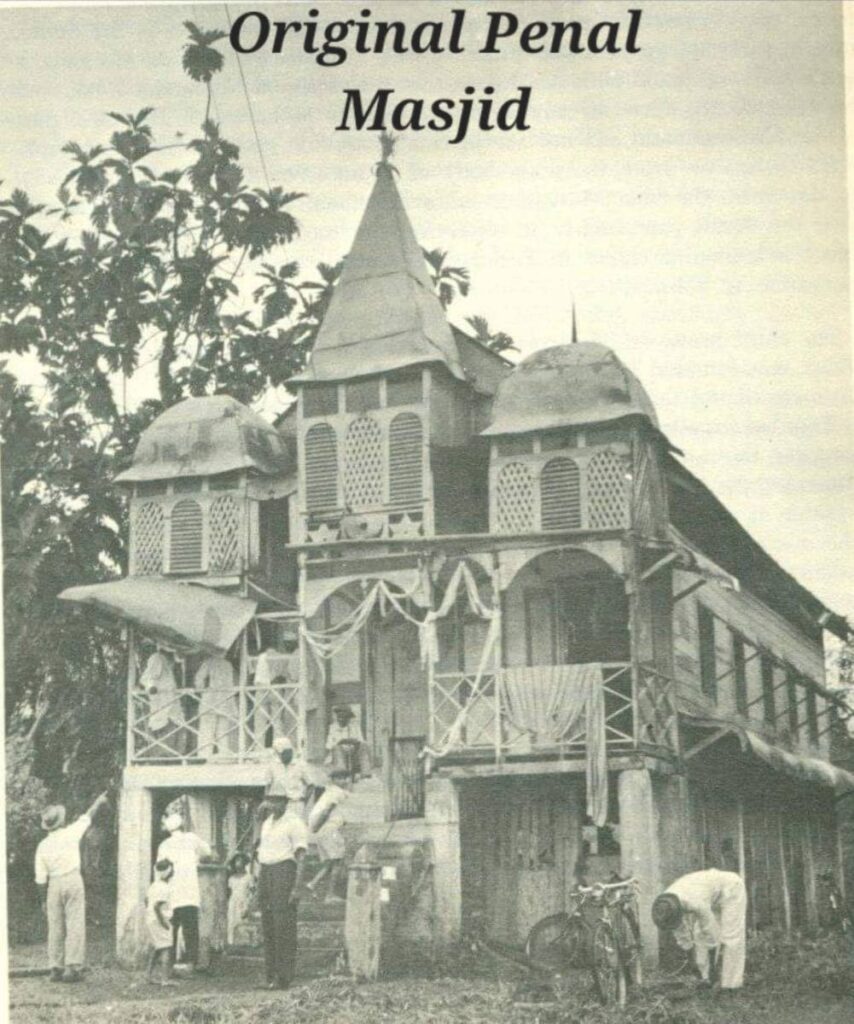
BAVINA SOOKDEO
As the nation celebrates Indian Heritage Month, Newsday visited the ASJA (Anjuman Sunnat ul Jamaat) Association Archives and Museum at the ASJA Education Complex, Charlieville.
The archives and museum feature historical data, documents, books, artefacts and more designed to play a part in preserving and propagating the history, development and contribution of Islam and Muslims to Trinidad and Tobago.
The idea of the late president of ASJA Haji Yacoob Ali, the ASJA Archives and Museum were formally opened by acting prime minister and minister of finance Winston Dookeran, on April 14, 2012.
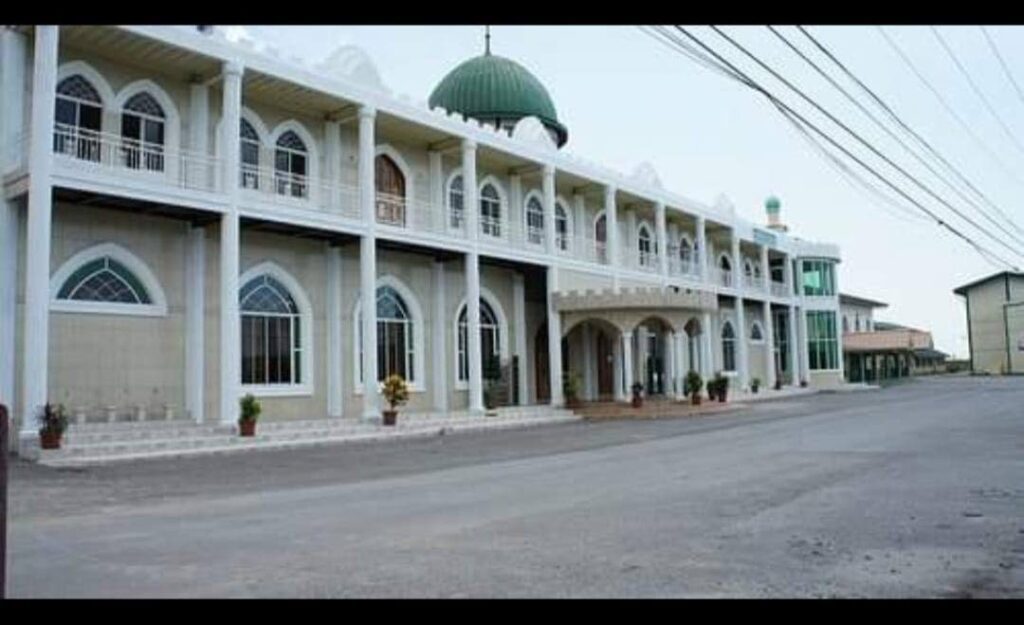
It houses approximately 300 artefacts, 4,000 books and 400 display posters that are being added to.
The dedicated manager/curator, 67-year-old Kashma Khan, related, “Here, we celebrate our culture and heritage as Muslim brothers and sisters, showcasing the history and contributions of Muslims, ASJA and Islam to our country. We highlight the legacy of our past imams and pioneers, and the development of our schools, from the era of African slavery and Indian indentureship to the present day.”
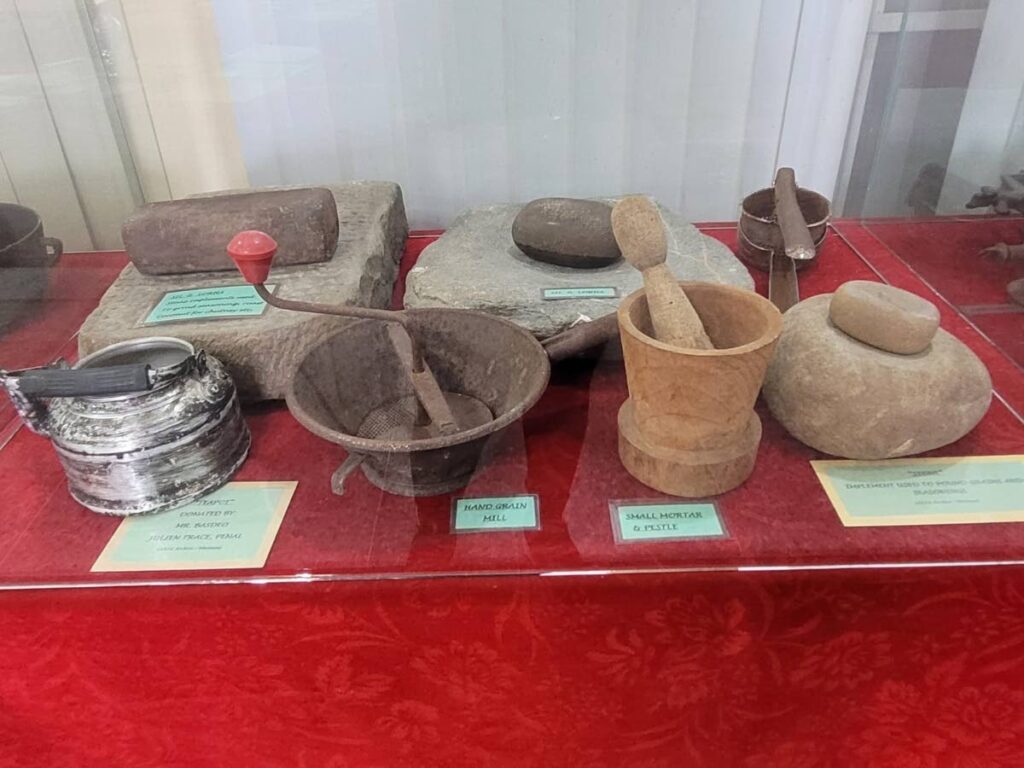
Formerly a public servant for 41 years, Khan worked at seven different ministries and 27 different departments, including the Ministry of Education and the National Museum.
With support from his four children and wife, Amaroon, Khan now looks after the day-to-day running of the building and its artefacts. He travels across TT to collect items for the displays, which he is deeply passionate about.
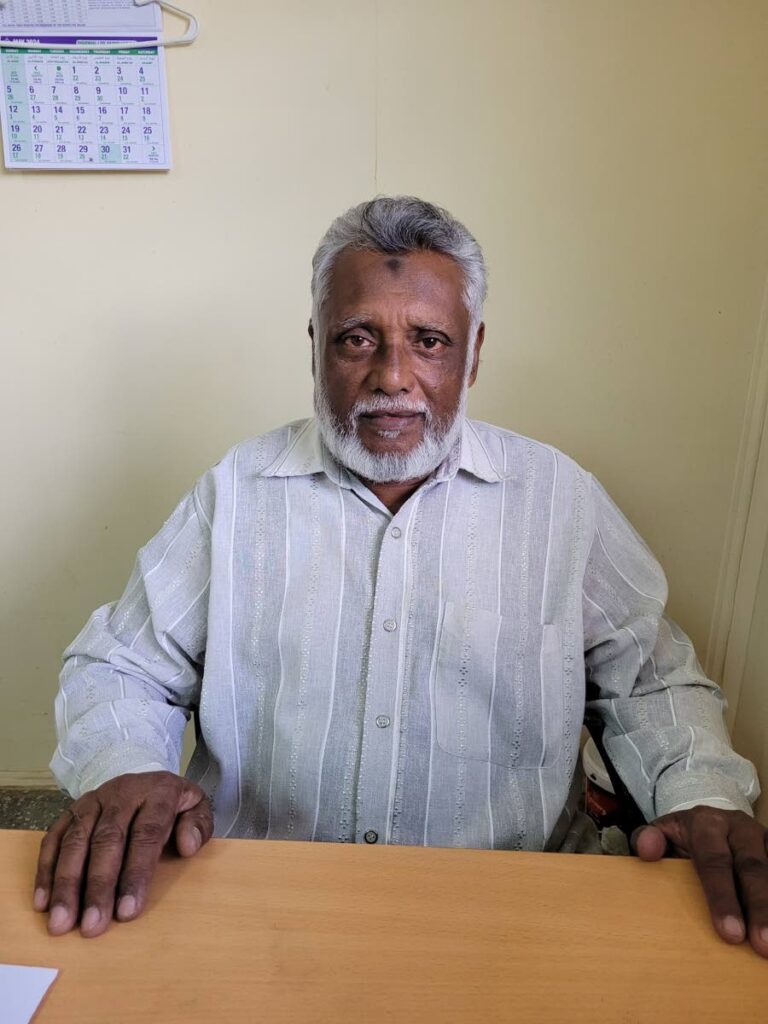
Asked about the origins of the artefacts, Khan mentioned that the largest collection came from Haji Sheriff Fida Hosein’s personal collection.
Hosein found an early Islamic community in Valencia, known as the Hondo River Settlement, where he found several artefacts. From that collection, Hosein donated three bottles to the ASJA Archives and Museum.
Another highly valuable contribution came from Haji Bassari of Sangre Grande, who donated a large Qu'ran over 300 years old.
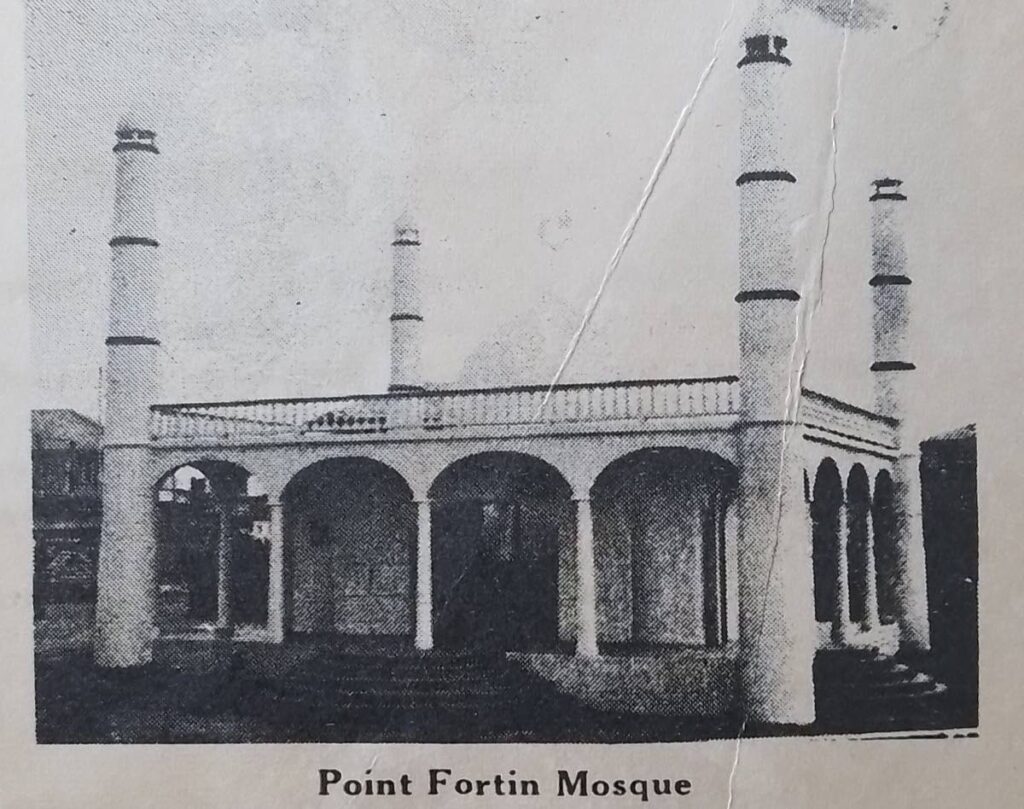
Khan also acquired several original books brought by indentured labourers.
“It took years to collect these things from various people,” he explained, “and we are still in the process of collecting. But we have lost a lot of our culture.”
He appealed to anyone with artefacts or historical data that could benefit the museum to donate by contacting him, the ASJA office, or any committee member.
Although the archives and museum are still expanding, they have already welcomed students on field trips, as well as local and international university students working on projects and theses. The BBC has featured Khan and artefacts from the museum in a documentary, and a Canadian television and radio station has interviewed Khan and his wife.
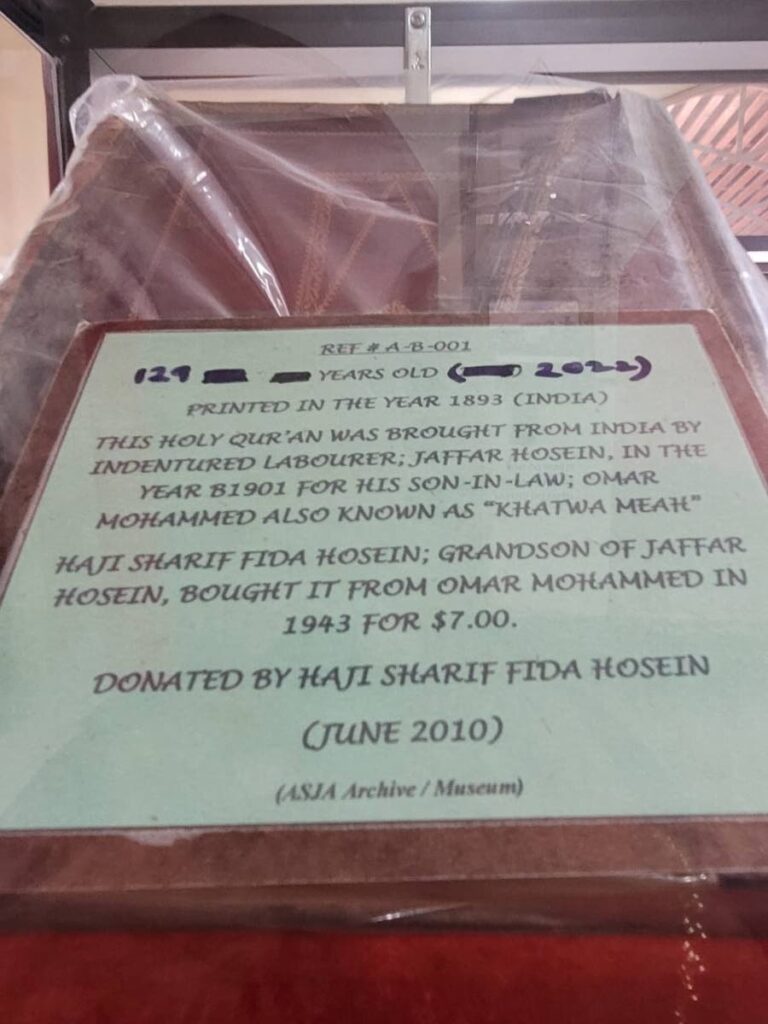
Dedicated to his role, Khan has worked to establish connections with various entities. The ASJA Archives and Museum now collaborates with the National Archives of and the National Museum, and is a member of both the National Trust and the TT Association of Museums.
“We have organised outreach programmes with T&TEC for Eid celebrations, and we have also participated in displays on Nelson Island," Khan said.
Despite significant progress, much work remains. Khan revealed plans for several projects, including documenting the history of all masjids, schools and Muslim pioneers in the country.
He also intends to write a book highlighting the origin and use of each artefact.
Asked his feelings about the celebration of Indian Heritage Month, Khan said, “When I reach for the artefacts in the museum, I feel like I reach for our forefathers and form a direct link with them.
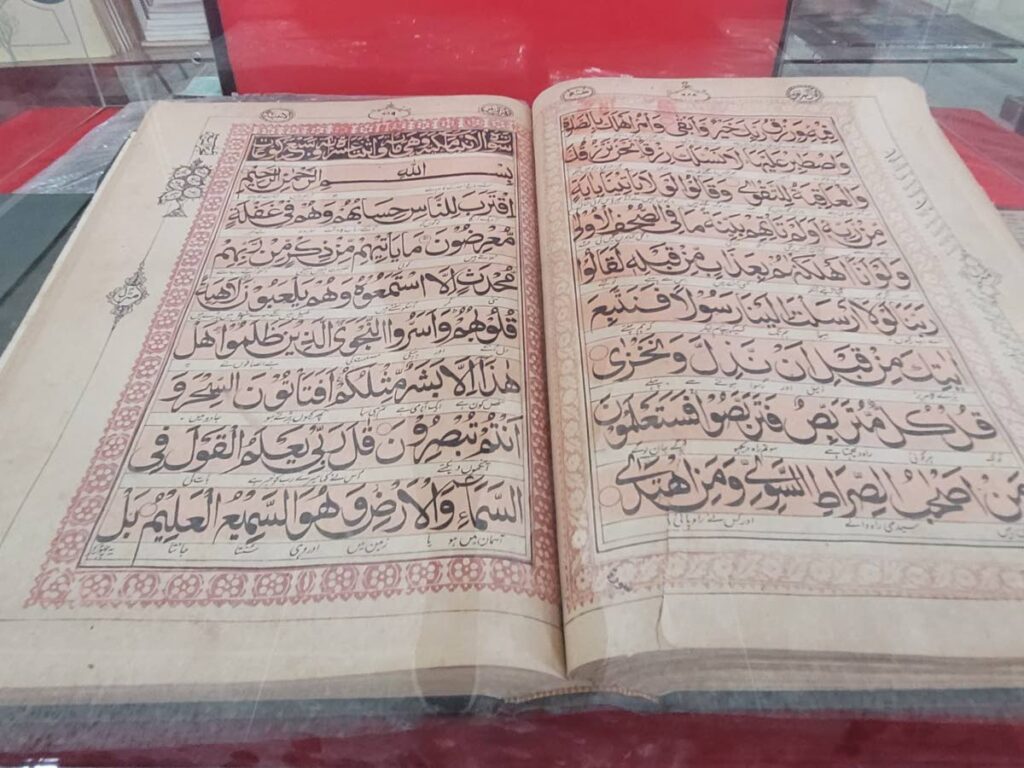
"It is good to recognise occasions like Indian Heritage Month, but we must use it wisely by remembering our forefathers, the efforts they made and the way in which they lived. We need to go back to jahaji bhai (brotherhood of the boat) and truly live like brothers and sisters.”
The ASJA Archives and Museum is accessible by appointment. Plans are under way to make it fully open to the public in the near future.
Those interested can visit the ASJA Archives and Museum Facebook page or contact Kashma Khan at 701-1387, the ASJA office at 671-8250 or e-mail 786archmuse@gmail.com.

Comments
"Indian Heritage Month – Inside the ASJA Archives and Museum"